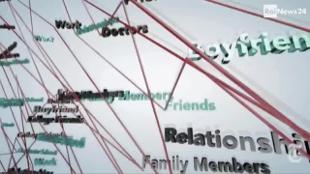Another month for the Internet Rights Charter
Obama: "The Net must remain open and free for all".
But the Telcos don't fit
Brazil champion of Net Neutrality
Net neutrality, the Telcos do not fit
Two-speed Net Neutrality
Share
by Celia Guimaraes
Washington February 26, 2015 The Federal Communications Commission (FCC), an independent agency that regulates communications in the United States, has approved the new rules of 'net neutrality', after a public debate that lasted a few months, in which President Obama also spoke .
Under the rules, it will not be possible to create a two-speed network for providers and service providers willing to pay more. Net neutrality was supported by the White House and large American tech groups (including Amazon, Google, Facebook), while it was opposed by service providers such as Verizon, Comcast, AT & t. Among other things, the new rules prohibit providers from offering higher internet speeds for a fee, a principle known as 'priority payment'.
In fact, the web is regarded as a public utility. The measure, supported by the Obama administration, which has defended the principle of the Internet - neutral data, content and access to consumers - was passed with three votes in favor (of Democratic lawmakers and two against (Republicans).
The network is equal for everyone,
"The Internet must be free, open and free." The two-speed web is not liked by the American President Barack Obama, who made it very clear last November,
personally intervening in the debate on the rules of the web
, at the time in discussion by the Federal Communications Commission.
Obama had also stigmatized telephone companies: “'' We cannot allow internet service providers to restrict access or choose winners and losers in the online market for services and ideas ''.
Rules are also being discussed in Italy
The public consultation on the draft of the Declaration of Internet Rights - prepared by the Study Commission set up by the Chamber of Deputies - has been
extended until March 31, 2015
.
The Declaration is a contribution to the public debate to indicate the direction that future rules will have to follow at all levels, from national legislation to international treaties.

